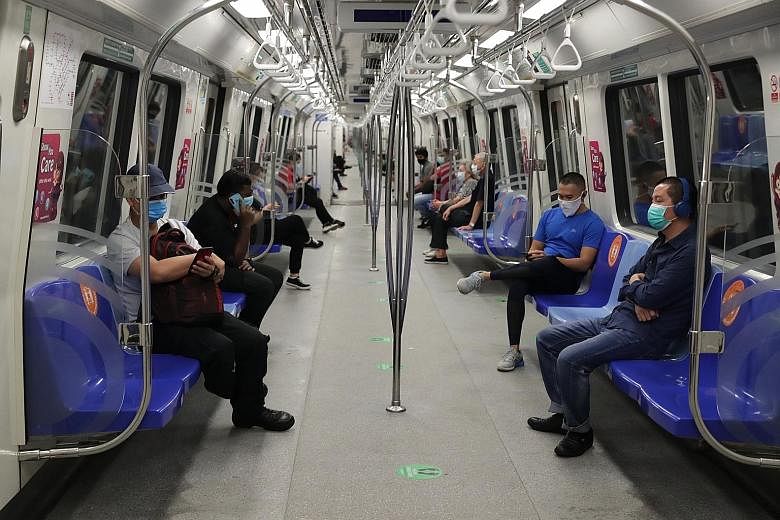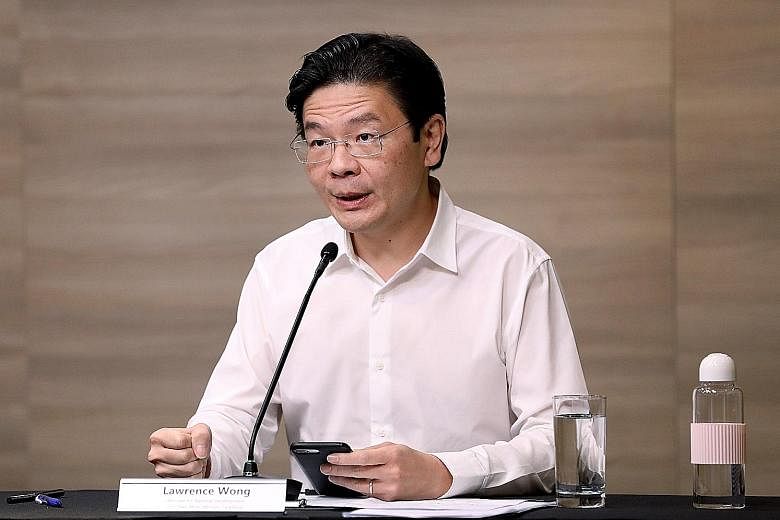Commuters will have to wear masks and refrain from talking on the phone or to one another when taking buses and trains, to avoid spreading droplets in an enclosed space.
These were among the measures announced on Tuesday (May 19) by the authorities as part of plans to keep commuters safe after Singapore exits the circuit breaker.
Speaking at a press conference, National Development Minister Lawrence Wong said ridership on public transport will increase as restrictions are eased, with more people commuting to work and school.
"We fully expect that it will be difficult to maintain physical distancing in public transport, trains or buses, during the peak periods," said Mr Wong, who co-chairs the multi-ministry Covid-19 task force.
"Maybe not for the entire route, but for certain journeys on certain bus routes or MRT routes, it will be difficult to maintain physical distancing.
"So we will focus on other safe management measures for public transport," he said.
To minimise travel during peak periods, businesses will be required to stagger their working hours.
Public transport operators will "increase the capacity of trains and buses to the maximum" to meet the expected rise in demand, said Transport Minister Khaw Boon Wan in a Facebook post.
He noted that trains and buses will be more crowded as public transport ridership increases.
Ridership on trains has fallen by 80 per cent since the coronavirus outbreak started in late January.
Before the pandemic, trains normally ran at intervals of two minutes or less during peak hours.
The Land Transport Authority (LTA) reduced the frequency of trains earlier last month to reflect lower demand from heightened safe distancing measures.
It subsequently increased the frequency of trains from one every five minutes to every three, after reports of crowding on some MRT lines.
At the time, Mr Khaw said that he told LTA to "err on the side of generosity" and to "over-provide rather than under-provide", as the priority was safe distancing for essential workers who still took the train to work.
On Tuesday, Mr Khaw said the risk of Covid-19 transmission among commuters is low, with the low community spread in Singapore.
The Health Ministry said the number of community cases has averaged three daily in the past week, down from six the week before.
One such case was reported on Tuesday.
To further reduce the risk, Mr Khaw said transport operators have stepped up their cleaning regime, and applied an anti-microbial chemical coating on frequently touched surfaces.
Similar coatings have already been applied on surfaces at Changi Airport and lift buttons at Housing Board blocks.
In his Facebook post, Mr Khaw also urged those who feel unwell to stay at home.
"Until there is a vaccine, and with so much still unknown about Covid-19, there is no foolproof way of avoiding infection.
"But we can minimise the risk to a manageable level," he said.



